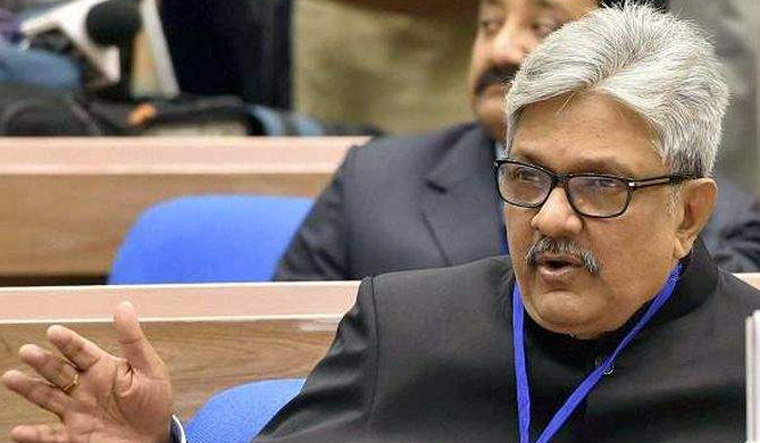Amid a row with the Centre over his seniority being lowered on his elevation, Justice K.M, Joseph, the Chief Justice of the Uttarakhand High Court, has taken oath as a judge of the Supreme Court on Tuesday.
The Centre on its part said it went purely by the "time tested" principle of high court seniority list. It came out with a notification last Friday on the appointment of three judges to the apex court by putting at third position the seniority of Justice K.M. Joseph.
The oath-taking ceremony of the three judges elevated to the Supreme Court—Justices Indira Banerjee, Vineet Saran and K.M. Joseph—took place as scheduled on Tuesday in the order of seniority notified by the Centre.
Judges including members of the collegium comprising Justices M.B. Lokur, Kurian Joseph and A.K. Sikri met Chief Justice Dipak Misra had raised their concerns on the seniority issue concerning Justice K.M. Joseph.
The judges were reported to be of the view that there was a need to sit together and ponder over the issue.
The court sources said that nothing much could be done at that stage and that the concerns raised by some of the judges would be discussed after the three judges are sworn.
The court sources said except for Justice Ranjan Gogoi, a member of the apex court collegium who was on leave, others had "informally" deliberated on the Centre's decision to lower the seniority of Justice K M Joseph.
However, it was decided that the oath-taking ceremony should take place.
"Let the oath-taking take place. There is no time. The oath-taking can't be deferred. It has to be seen what can be done later," the court sources said about the discussion that was held among the judges in the morning at the judges' lounge before they commenced the day's working in the apex court.
They said that the CJI, who heads the collegium, assured the judges that he would consult Justice Gogoi who is the senior most after him and take up the issue with the Centre.
Top government sources pointed out that the executive "went purely by the time tested principle of the high court seniority list" in placing Justice Joseph below justices Banerjee and Saran.
It was also pointed out that none of the three judges will become the Chief Justice of India (CJI) as there are other SC judges who have been elevated to the apex court earlier and they will also retire later.
In the notification, the names of Justice Indira Banerjee, Chief Justice of the Madras High Court, was at number one, followed by that of Justice Vineet Saran, Chief Justice of the Orissa High Court.
It is the convention that seniority of the judges is determined in accordance with the order of names notified by the government.
The warrants of appointment of the three judges were signed by the President on August 3.
Justice Joseph's elevation to the apex court put an end to a protracted stand-off between the government and the judiciary.
Justice K M Joseph, the Chief Justice of the Uttarakhand High Court, headed a bench which had quashed the imposition of President's Rule in the state in 2016. Uttarakhand was then under the Congress rule.
The collegium had on January 10 recommended the name of Justice Joseph, along with that of senior advocate Indu Malhotra, for elevation to the apex court.
However, the government had returned Justice Joseph's name for reconsideration and gone ahead with the appointment of Justice Indu Malhotra.
The collegium had on May 16 in-principle reiterated the decision to recommend Justice Joseph's name for elevation to the apex court. The recommendation was sent to the government in July and it was accepted.
The number of judges in the top court after the fresh appointments has gone up to 25. There are still six vacancies.

